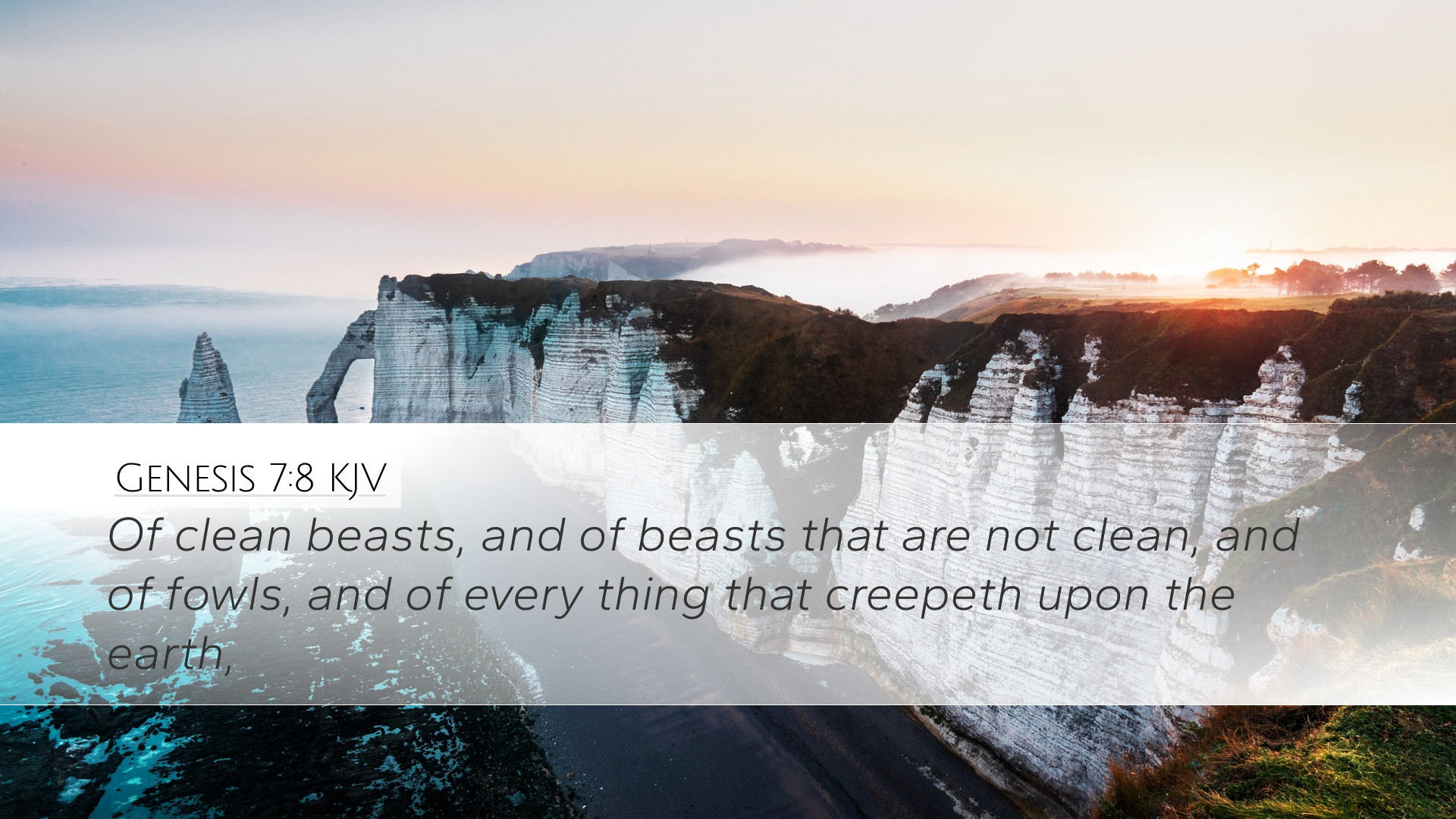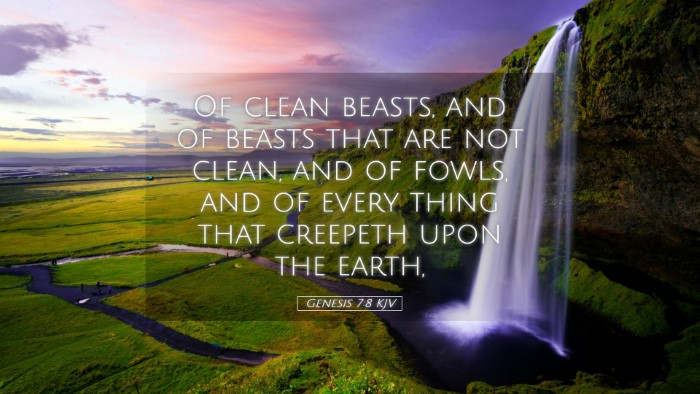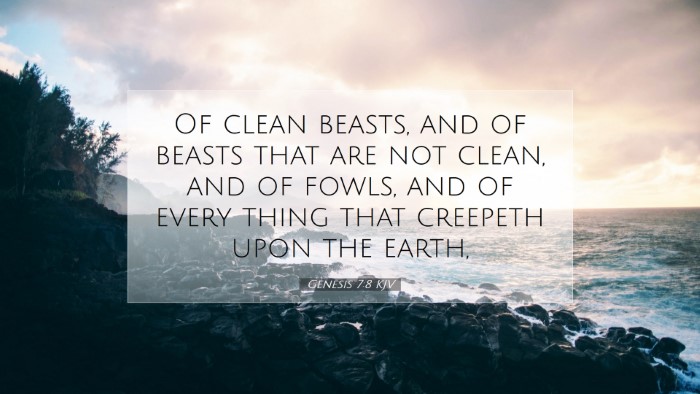Commentary on Genesis 7:8
Verse Text: "Of clean beasts, and of beasts that are not clean, and of fowls, and of every thing that creepeth upon the earth."
This verse comes at a pivotal point in the biblical narrative and is part of the instructions given to Noah concerning the preservation of various species during the impending flood. In analyzing this passage, insights from respected public domain commentaries reveal profound theological implications.
1. Contextual Background:
In the larger context of Genesis, the flood represents God's judgment upon a corrupt world. Noah is identified as a righteous man, chosen to preserve a remnant of creation.
- Matthew Henry remarks on the significance of Noah's obedience to God's command despite the daunting task he faced. He emphasizes that God’s covenant with Noah extends not only to humans but to every living creature.
- Albert Barnes draws attention to the distinction made between clean and unclean animals, correlating this with the later Mosaic Law, which provides guidelines for sacrificial practices and dietary restrictions.
- Adam Clarke offers insight into the cultural practices of ancient peoples, noting that Noah's understanding of clean and unclean animals was likely influenced by contemporary customs regarding worship and sacrifice.
2. The Significance of Clean and Unclean:
The classification of animals as clean and unclean is crucial in biblical law and signifies a deeper understanding of ritual purity and holiness.
- Henry highlights that the clean animals would later serve sacrificial purposes, pointing to a foreshadowing of the sacrificial system established in Levitical law.
- Barnes emphasizes that this division serves to remind the readers of the importance of holiness and separation from that which defiles, a theme prevalent throughout Scripture.
- Clarke suggests that this knowledge of clean and unclean reflects God’s preordained plan for worship, allowing Noah to honor God even in perilous circumstances.
3. God's Sovereignty in the Preservation of Life:
This verse encapsulates God’s providential care and the intricate details involved in the preservation of life. Noah's selection of animals highlights God’s intimate knowledge of creation.
- Henry notes that God’s commandments often require the faithful fulfillment of responsibilities, a theme that resonates with believers at all levels of faith.
- Barnes points out that God's provision for all kinds of animals stresses His sovereignty. He ordained that each species would survive beyond the flood, ensuring the continuity of life.
- Clarke expands on this notion, stating that God’s decree to save both clean and unclean animals serves as an illustration of His mercy, extending even to those deemed unclean.
4. Theological Implications:
Genesis 7:8 not only records a historical event but also invites theological reflection on God's character and the nature of holiness.
- Henry suggests that the inclusion of all creatures speaks to God’s equity and justice, for He cares for the whole of creation, not just humanity.
- Barnes infers that this diversity of creatures reinforces the idea that God’s grace is not limited to humanity alone but extends to all His creations.
- Clarke prompts believers to see this as a precursor to the New Testament themes where all creation awaits redemption, evidenced in Romans 8:19-22.
5. Practical Applications for Believers:
The implications of Genesis 7:8 encourage a deeper understanding of how believers interact with the world around them. Here are practical lessons:
- Obedience to Divine Command: Just as Noah obeyed God’s instruction, believers are called to live faithfully in accordance with God’s Word.
- Understanding Purity: The distinction between clean and unclean emphasizes the need for spiritual purity and discernment in the believer’s life.
- God’s Grace in Preservation: Recognizing God's mercy in preserving even the unclean reminds believers to extend grace to one another.
Conclusion:
The verse Genesis 7:8 provides rich theological and practical insights regarding God's creation, His commands, and the nature of life. The reflections from the commentaries of Henry, Barnes, and Clarke help illuminate the text's meaning, offering a lens through which to understand God’s covenantal relationship with humanity and all of creation.


